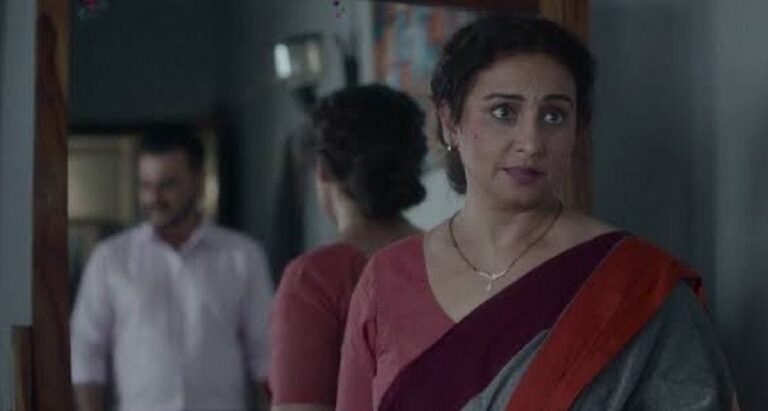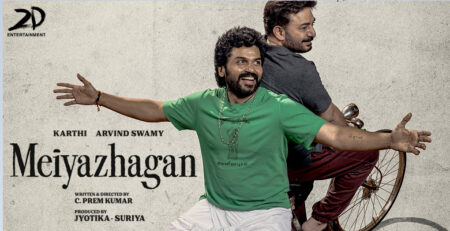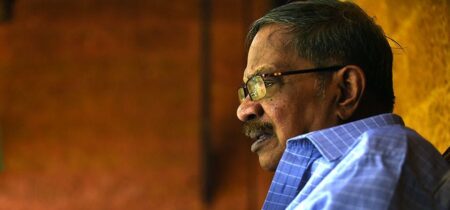An anthology of seven short films, Zindagi in Short showcases stories of seven ordinary women with uncommon stories.
Slowly but steadily, the movie buffs of the sub-continent have accepted and assimilated digital platforms and their divergent spectacles as the ‘new normal’ of visualization. The lethargy and monotony during the spread of the pandemic, and the lockdown have instigated many a lover of the silver screen to realize the Over-The-Top (OTT) as the new screen and various platforms such as Netflix, Amazon Prime, Disney Hotstar and the like.
As far as the Indian film industry is concerned, these platforms have acted as a ‘messiah’ and the new ‘messiah’ has been radical enough to broach up the ‘taboo-ish’ and not so comfortable issues and themes to the forefront. In a way, many of the movies addressed the anxieties of the ‘new’ global Indian citizen and they more or less streamlined the geographical confines of the national cinema. Yet another major facelift that happened to the Bollywood cinema is the prominence being assigned to women as the centripetal force and aura in deciding the fate and the success of a movie. A bevy of woman-centric movies like She, Tribhanga, Bombay Begums etc., and their popularity in the IMDB authenticate the metamorphosis of Indian cinema.
With a new movie being added every other day, Netflix has surpassed all the other platforms in India with its enormous amount of movies available and the diverse themes being included in their original production tagline. Zindagi in Short (2020), a Netflix Original Video and produced by Guneet Monga is one of such illustrious efforts. This omnibus of seven movies has genuinely tried to drive home the need for a ‘shortcut’ in life.
Versatile collection
Designed as a bouquet of seven films, this anthology of short films has tried to bring justice to many of the not so trivial issues that everyone, especially women encounter in society. Whether it’s domestic violence or the issue of a fast-paced life, this anthology is a rainbow-hued experience for those who love watching movies that are short spanned and divergent.
Homemakers in this country would love to identify themselves with Neena Gupta in Tahira Kashyap’s Pinni. Pinni is a North Indian sweet dish that is mostly made out of wheat or millets and jaggery. The question of whether a wife or a mother is accepted and accommodated only for the comforts that she provides for the family is definitely a thought-provoking one. Her ‘pinni’ sweets are given away with much effort but her insignificance is thrust upon her face by her husband as well as by her daughter. Even though late, awareness and empowerment enthrals her in the form of rebellion, resulting in her defying, ‘being herself’ and deciding the course of her own life.
Punarvasu Naik’s Sleeping Partner, featuring Divya Dutta, treads upon the much precarious path of marital rape and domestic violence. So far the Hindi film industry has purposefully repressed many delicate issues such as the domestic atrocities to women, but Sleeping Partner has gone ahead in narrating it in a very liberating manner. This movie has been bold enough to unfold the ‘transgression’ of a woman and satiating her inner as well as her outer ‘modern’ desires.
About love, life

Sunny Side Upar by Vijayeta Kumar features Rima Kallingal as Dr Kavya Menon, with her hectic and fast-paced life that gave little or no space/time for any personal intimacies. Even though the movie radiates the universal truth that the secret to happiness in life is to achieve and balance a positive outlook, it communicates the harsh modern reality of losing one’s personal and emotional ties that anchor us as rational beings. Her inability to convey her innermost feelings even to her partner and the lack of time and interest to communicate with her mother, all point towards the day-to-day reality of a working woman. The sudden thwack on her reality happens with her best buddy being diagnosed with malignancy.
Smrithika Panigrahi’s Swaaha is yet another ‘newbie’ kind of Hindi film with infidelity being openly talked about. It mockingly targets the absurdity and trauma of modern marriages as the most pivotal institution and in a very satirical manner raises the question about the authenticity of it. It proclaims the ultimate truth that no marriage is simple enough as they appear to be and ridicules the sanctity attached to it. The male character, Kapil, is left with doubt and confusion about the parentage of his own kids due to the drunken revelation done by his wife.
Thappad
Are all old people schizophrenic? Rakesh Sain’s Nano So Phobia narrates the drudgery and monotony related to old age and the perplexity attached to it. Recounted in a very sarcastic way, Sain has tried to communicate our tendency to categorise old age with muddled up brains. The loneliness and abandonment that affects people in their declining years has a harsh realistic tone and the fact that not all conjures up falsity has been driven home quite effectively through this movie .
Vinay Chhawal’s Thappad is a jaunty narration of childhood innocence and eagerness of a brother to stand up for oneself as well for his sister; Chhawal himself has opined that this movie is all about picking oneself up, no matter what and going ahead with life. It very beautifully portrays a younger brother’s (Bablu’s) concern and care for his sister who is being followed and disturbed by a few boys. The intensity of the trauma that the boy goes through prompts him to believe even in a comic character and to stand up against the ‘faceless’ molesters with much ardour. As the saying goes that violence has got no face, Chhawal has cropped the face of those boys who threatened the small boy and only their voices and actions were shown on screen.
Chhaju Ke Dahi Bhalle
Chhaju Ke Dahi Bhalle by Gautam Govind is a slapstick reminder about the intricacies and the harsh reality of online dating and the irony of being in love while being in two different countries. The pangs of being in love and not able to meet each other due to the existing hostility between the two nations has been visualised by the director in a very heart-tugging manner. The online rendezvous of the boy and the girl comes to the halt with the geographical border separating them and the decision to meet at the border throws much impact upon the universality of love.
Overall, these movies jointly bring about a plethora of emotions emanating from inside. What is so special about this compilation of visual feast is that the muted are given a voice and the hard-hitting reality of day-to-day life is conjured-up with promptness and alacrity. What makes this movie strikingly realistic is the wonderful female lead which is enacted by equally talented and radical personalities like Neena Gupta, Divya Dutta, Swaroop Sampat, Rima Kallingal and Isha Talwar.




